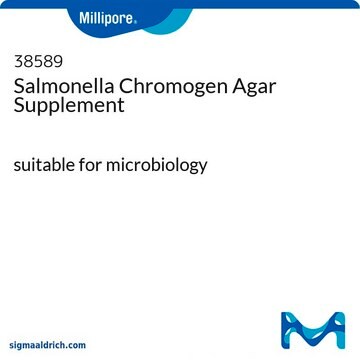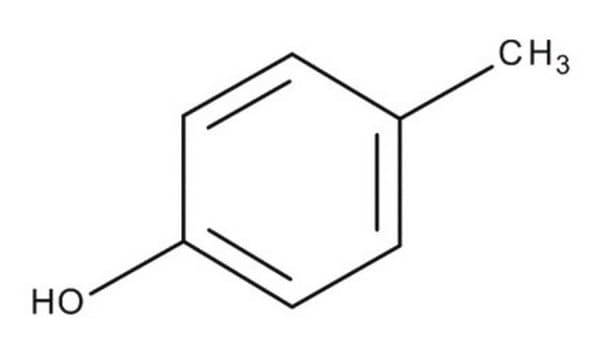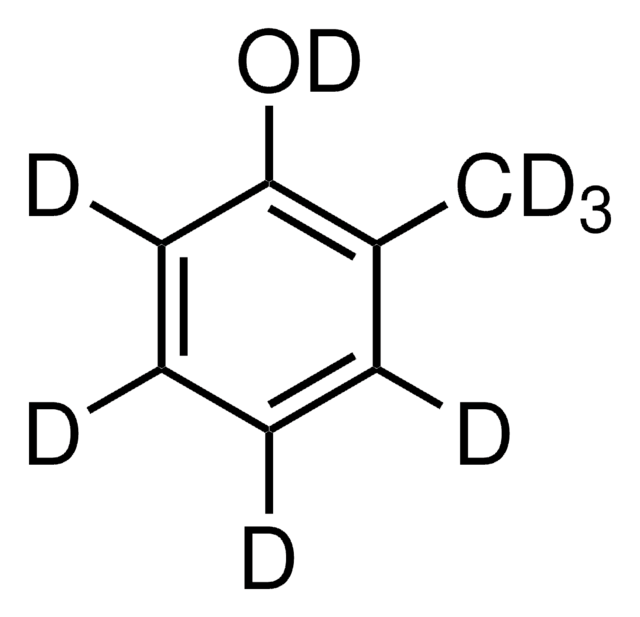42429
p-Cresol
analytical standard
Sinónimos:
4-metilfenol
About This Item
Productos recomendados
grade
analytical standard
Quality Level
vapor density
3.72 (vs air)
vapor pressure
1 mmHg ( 20 °C)
assay
≥99.0% (GC)
autoignition temp.
1038 °F
shelf life
limited shelf life, expiry date on the label
expl. lim.
1 %
1.1 %, 150 °F
technique(s)
HPLC: suitable
gas chromatography (GC): suitable
bp
202 °C (lit.)
mp
32-34 °C (lit.)
32-35 °C
density
1.034 g/mL at 25 °C (lit.)
application(s)
agriculture
cleaning products
cosmetics
environmental
flavors and fragrances
food and beverages
personal care
format
neat
SMILES string
Cc1ccc(O)cc1
InChI
1S/C7H8O/c1-6-2-4-7(8)5-3-6/h2-5,8H,1H3
InChI key
IWDCLRJOBJJRNH-UHFFFAOYSA-N
¿Está buscando productos similares? Visita Guía de comparación de productos
General description
Find all available reference materials for compounds listed in 10/2011 here
Application
signalword
Danger
hcodes
Hazard Classifications
Acute Tox. 3 Dermal - Acute Tox. 3 Oral - Aquatic Chronic 3 - Eye Dam. 1 - Skin Corr. 1B
Storage Class
6.1A - Combustible acute toxic Cat. 1 and 2 / very toxic hazardous materials
wgk_germany
WGK 2
flash_point_f
186.8 °F - closed cup
flash_point_c
86 °C - closed cup
ppe
Eyeshields, Faceshields, Gloves, type P3 (EN 143) respirator cartridges
Elija entre una de las versiones más recientes:
¿Ya tiene este producto?
Encuentre la documentación para los productos que ha comprado recientemente en la Biblioteca de documentos.
Los clientes también vieron
Nuestro equipo de científicos tiene experiencia en todas las áreas de investigación: Ciencias de la vida, Ciencia de los materiales, Síntesis química, Cromatografía, Analítica y muchas otras.
Póngase en contacto con el Servicio técnico













